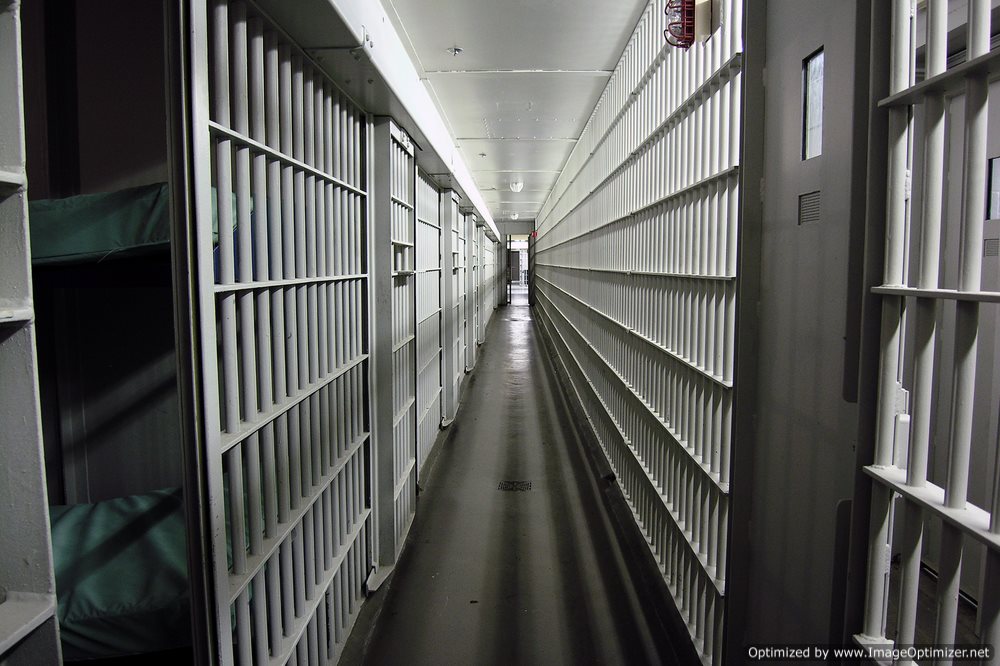
Alabama’s new immigration law, harshest yet in the state, requires for anyone who cannot prove that they are legal in the country to be arrested. The new policy goes as far as to have schools check the status of its students, although they are still allowed to attend school, many are outraged by the practices.
Chief Deputy Randy Christian is wondering where to place the detainees as the jails are already suffering from overcrowding.
The new law threatens financial struggle to the the farming industry as most of the labor is done by illegal immigrants.
Obama administration acted to appeal the strict Alabama immigration law but we have yet to see how it will affect the situation. As of right now it is better to carry your ID with you or think about moving out of state if you do not have one.
Alabama Jails Immigrants: The Complexities and Issues Surrounding Immigration Detention Centers in the State
Alabama is one of several states in the United States that jails immigrants in detention centers. This topic has been a source of controversy and debate in recent years, especially as the United States Immigration and Customs Enforcement (ICE) has increased the number of detentions and deportations of undocumented immigrants. The practice of jailing immigrants, particularly those who are awaiting court hearings or deportation, has raised concerns about human rights violations, the misuse of taxpayer funds, and the impact on local communities.
In this article, we will delve into the complexities and issues surrounding immigration detention centers in Alabama. We will explore the policies that allow for the detention of immigrants, the conditions of these facilities, and the human impact on those who are detained. We will also discuss the perspectives of different stakeholders, including government officials, advocates, and detainees themselves. Finally, we will consider some of the political and legal challenges facing immigration detention centers in Alabama and across the country.
The Policies and Laws that Allow for the Detention of Immigrants in Alabama
The detention of immigrants in Alabama is governed by a complex web of federal and state policies and laws. At the federal level, the main legislation that governs immigration detention is the Immigration and Nationality Act (INA). This act provides broad authority to ICE to detain non-citizens who are suspected of being in the country unlawfully or who are subject to deportation. Under INA, law enforcement officers have the power to arrest and detain immigrants without a warrant and without probable cause.
However, the federal government does not operate its own detention centers. Instead, it contracts with private companies, local jails, and state prisons to provide detention services. In Alabama, two private companies, CoreCivic and GEO Group, operate the state’s three immigration detention centers. These facilities are located in Gadsden, Livingston, and Ward, and have a combined capacity of nearly 4,000 detainees.
The state of Alabama has also passed laws that facilitate the detention of immigrants. In 2011, the state passed the Beason-Hammon Alabama Taxpayer and Citizen Protection Act, which required police officers to check the immigration status of anyone they stop, detain, or arrest if they suspect the individual is in the country without proper documentation. The law also imposed strict penalties on employers who hire undocumented workers and required schools to collect data on the immigration status of students.
Although portions of the Beason-Hammon Act were struck down by federal courts, the law remains in effect in some form. It has led to increased cooperation between state and federal law enforcement agencies in the apprehension and detention of immigrants. Critics of the law argue that it has created a climate of fear and distrust in immigrant communities, and has led to racial profiling and discrimination.
The Conditions Inside Alabama’s Immigration Detention Centers
Reports from government officials, advocates, and journalists have raised serious concerns about the conditions inside immigration detention centers in Alabama. A 2020 report from the South Poverty Law Center found that detainees in the state often face overcrowding, inadequate medical care, and subpar living conditions. The report noted that detainees in CoreCivic’s facility in Gadsden reported being forced to sleep on floors and to use dirty, malfunctioning toilets.
The report also found that detainees in Alabama detention centers are often isolated from their families and legal counsel. Detainees reported being denied access to legal materials and being subjected to arbitrary and prolonged detention without a hearing. Some detainees also reported verbal and physical abuse by guards.
The conditions inside immigration detention centers in Alabama and across the country have been the subject of numerous investigations and lawsuits. In recent years, immigration advocates and human rights groups have called for greater transparency and accountability in the operation and oversight of these facilities.
The Human Impact of Immigration Detention
The detention of immigrants in Alabama has had a profound human impact on those who are detained, as well as on their families and communities. Many immigrants who are detained in these facilities are asylum seekers or refugees fleeing violence and persecution in their home countries. For these individuals, detention can be particularly traumatic, as they may be reliving the trauma of their experiences in their home countries.
The uncertainty and anxiety of detention can also take a toll on detainees’ mental and physical health. Many immigrants in detention suffer from depression, anxiety, and other psychological disorders as a result of their confinement. They may also experience physical ailments due to inadequate medical care or poor living conditions.
Detention can also have a devastating impact on families and communities. Children may be separated from their parents for months or even years, causing significant emotional and psychological damage. Spouses, siblings, and other family members may also suffer from the stress and uncertainty of their loved ones’ detention.
Advocates and government officials have called for alternatives to detention, such as community-based programs, that would allow immigrants to live with family members or other supportive networks while they await their court hearings or deportation. There is evidence that such programs are not only more humane but also more cost-effective than detention centers. Nevertheless, the continued expansion of immigration detention in Alabama and across the country suggests that the political will to implement such measures remains limited.
Stakeholder Perspectives on Immigration Detention in Alabama
The issue of immigration detention in Alabama has generated a wide range of perspectives among different stakeholders. Government officials argue that detention is necessary to ensure public safety and national security. They cite the importance of enforcing immigration laws and removing those who are living in the country illegally.
Immigration advocates, on the other hand, argue that detention represents a violation of human rights and due process. They call for alternatives to detention and greater transparency in the operation and oversight of detention centers. Some advocates have also called for an end to the current system of immigration enforcement, arguing that it is inherently flawed and leads to mass violations of rights and severe harm to individuals and communities.
Detainees themselves have also spoken out against the conditions inside immigration detention centers. They have called for improved living conditions, access to legal counsel, and greater opportunities for release or deportation. Some detainees have also participated in hunger strikes and other forms of protest to draw attention to their plight.
The Political and Legal Challenges Facing Immigration Detention Centers
The expanded use of immigration detention in Alabama and across the country has faced numerous political and legal challenges in recent years. Immigration advocates and human rights groups have called on policymakers and elected officials to reform the current system of immigration enforcement and replace it with a more humane and transparent one.
Some of the proposed reforms include increased oversight of detention centers, greater access to legal counsel for detainees, and alternatives to detention such as community-based programs. Advocates have also called for an end to the use of private companies in operating detention facilities, citing concerns about accountability and transparency.
In addition, various legal challenges have been launched against the use of immigration detention in Alabama and other states. These challenges have focused on issues such as the constitutionality of detention without a hearing, the adequacy of medical care, and the use of prolonged detention as a deterrent for asylum seekers. Ultimately, these legal challenges will play an important role in shaping the future of immigration detention in Alabama and across the country.
Conclusion
The detention of immigrants in Alabama represents a complex and contentious issue that touches on a range of political, legal, and human rights concerns. The policies and laws that govern this practice have been the subject of intense debate and scrutiny, with advocates and government officials offering different perspectives on the necessity and efficacy of immigration detention.
The conditions inside Alabama’s detention centers have also been a source of concern, with reports of inadequate living conditions, medical care, and access to legal counsel. The human impact of detention on those who are detained, as well as on their families and communities, cannot be overstated. Nevertheless, the continued expansion of immigration detention in Alabama and across the country suggests that this issue will remain a topic of debate and advocacy for years to come.



























